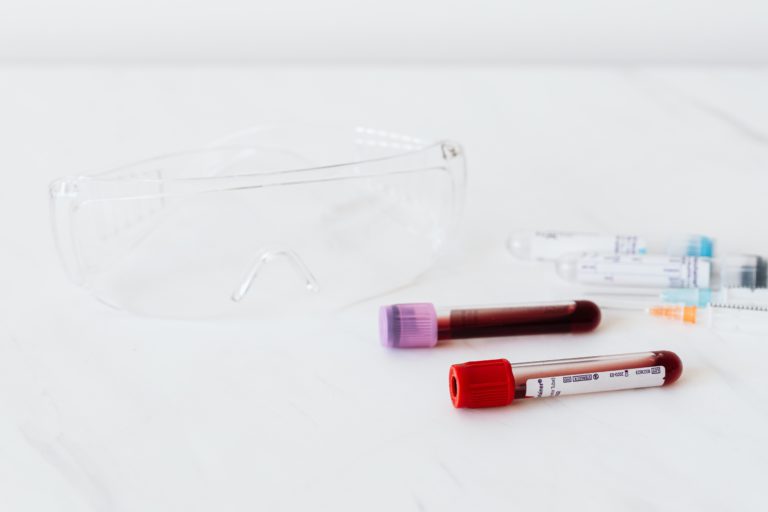
Bringing a new life into the world is a beautiful journey, but it’s crucial to ensure the health and well-being of both the mother and the baby throughout pregnancy. As a pregnant woman reaches the 36-week mark, certain blood tests become essential to monitor her health and prepare for a safe delivery. These tests offer valuable insights into potential risks and allow healthcare providers to take necessary actions. In this article, we’ll explore the key blood tests that every woman at 36 weeks of pregnancy should consider.
Why Are Blood Tests Important at 36 Weeks?
Blood tests play a vital role in assessing various health parameters. At the 36-week mark, they help in identifying any potential risks or complications that could affect the pregnancy or delivery process. These tests also aid healthcare providers in making informed decisions to safeguard the well-being of both the mother and the baby.
Essential Blood Tests at 36 Weeks Pregnant
Glucose Screening
At 36 weeks, you’ll likely undergo a glucose screening test to check for gestational diabetes. This involves consuming a sugary solution and having your blood sugar levels tested afterward. Detecting gestational diabetes is crucial, as it helps manage potential complications during labor and birth.
Group B Streptococcus (GBS) Testing
GBS is a bacterium that some women carry without experiencing symptoms. However, it can be transmitted to the baby during childbirth, leading to infections. The GBS test involves a swab of the vaginal and rectal areas to determine if the bacterium is present. If positive, you might receive antibiotics during labor to protect your baby.
Complete Blood Count (CBC)
A CBC measures various components of your blood, including red and white blood cells and platelets. Changes in these counts could indicate conditions like anemia or infection, which need to be addressed before delivery.
Antibody Screen
This test checks for antibodies in your blood, which could potentially harm your baby. If you have certain antibodies, your healthcare provider will monitor you closely and determine the best course of action for a safe delivery.
Rh Factor Testing
Rh factor testing determines whether your blood is Rh-positive or Rh-negative. If you’re Rh-negative and your baby is Rh-positive, there’s a risk of Rh incompatibility. This test helps prevent complications that can arise due to Rh incompatibility.
Where To Get Tested?
Say Goodbye To Waiting Rooms And Long Lines. Speedy Sticks offers at-home testing.
Essential Tests at 36 Weeks Pregnant

Iron Levels Assessment
Anemia is common during pregnancy. Assessing iron levels ensures that the mother has an adequate supply of red blood cells, reducing the risk of complications during delivery.
Hepatitis B Surface Antigen Test
This test identifies if the mother is carrying the hepatitis B virus. If positive, necessary precautions can be taken to prevent transmission to the baby during birth.
Syphilis Testing
Syphilis can have severe implications for both the mother and the baby. Testing helps diagnose and treat the condition, reducing potential risks.
Urinalysis
Urinalysis detects protein and sugar levels in the urine, which can indicate conditions like preeclampsia or gestational diabetes, allowing for timely interventions.
Cervical Cultures
Cervical cultures help identify any infections that could affect the baby during childbirth. This information guides the healthcare provider in determining the best course of action.
Thyroid Function Tests
Thyroid imbalances can impact pregnancy. Testing thyroid function ensures that any issues are addressed, promoting a healthy pregnancy.
Cystic Fibrosis Carrier Screening
This screening assesses the risk of the baby inheriting cystic fibrosis. It’s an opportunity for parents to make informed decisions about their child’s future care.
Ultrasound and Biophysical Profile (BPP)
Ultrasound and BPP evaluate the baby’s well-being, amniotic fluid levels, and movement. These tests provide insights into the baby’s health before delivery.
Non-Stress Test (NST)
The NST monitors the baby’s heart rate in response to movements. It helps ensure the baby is getting enough oxygen and is thriving inside the womb.
Preparing for Blood Tests
To ensure accurate results, follow any instructions provided by your healthcare provider. This might involve fasting before certain tests or refraining from specific medications.
What to Expect During the Tests
Most blood tests are quick and relatively painless. A healthcare professional will take a blood sample, usually from your arm, and send it to a lab for analysis.
Understanding the Results
Your healthcare provider will explain the test results and discuss any necessary actions or interventions. If any results are concerning, they’ll work with you to create a suitable care plan.
Implications for Labor and Delivery
The results of these tests can influence your birthing plan. For instance, if you test positive for GBS, your healthcare provider might recommend antibiotics during labor to prevent infection in your baby.
Managing Potential Complications
Should any test results indicate potential issues, your healthcare provider will take steps to manage them, ensuring the safest possible delivery for both you and your baby.
The Role of Your Healthcare Provider
Your healthcare provider is your partner in this journey, offering guidance, support, and expertise. Regular prenatal visits and recommended tests help them keep a close eye on your health.
Maintaining a Healthy Pregnancy
In addition to blood tests, maintaining a healthy lifestyle, eating nutritious foods, staying active, and attending prenatal appointments all contribute to a smooth pregnancy and positive birth experience.
Conclusion
As a pregnant woman approaches the 36-week milestone, prioritizing comprehensive blood tests is essential for a smooth and safe childbirth experience. These tests empower healthcare providers to address any potential complications and ensure the well-being of both the mother and the baby.
Say Goodbye To Waiting Rooms And Long Lines. Speedy Sticks offers at-home testing.








